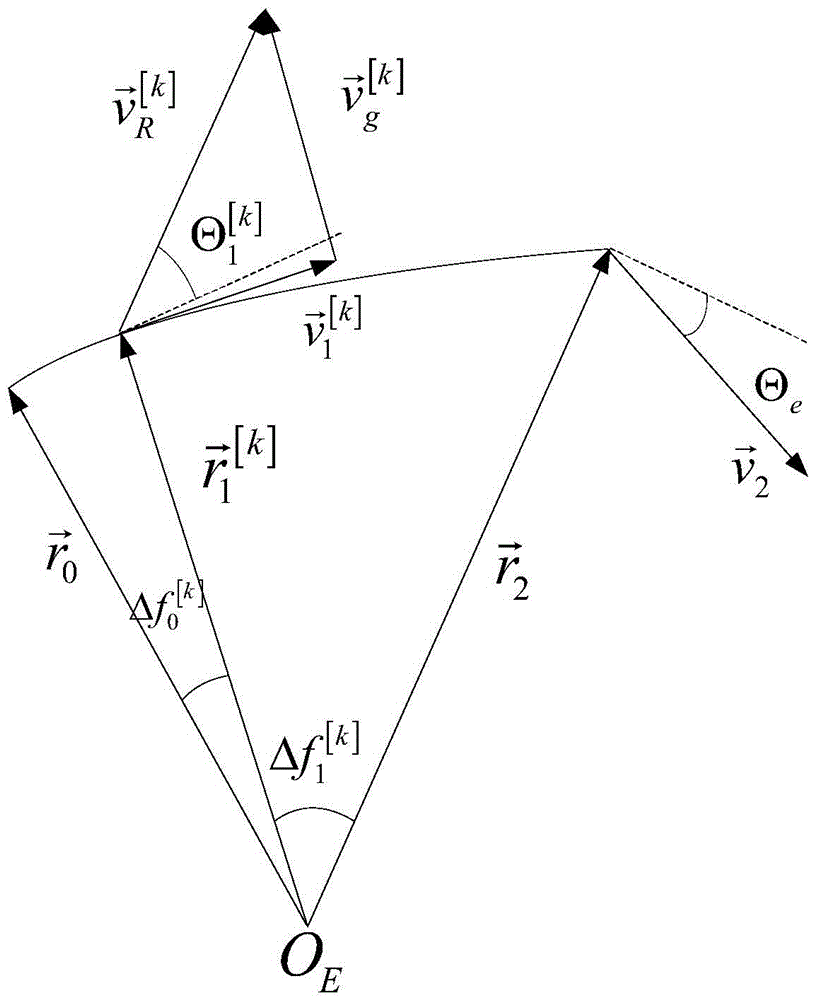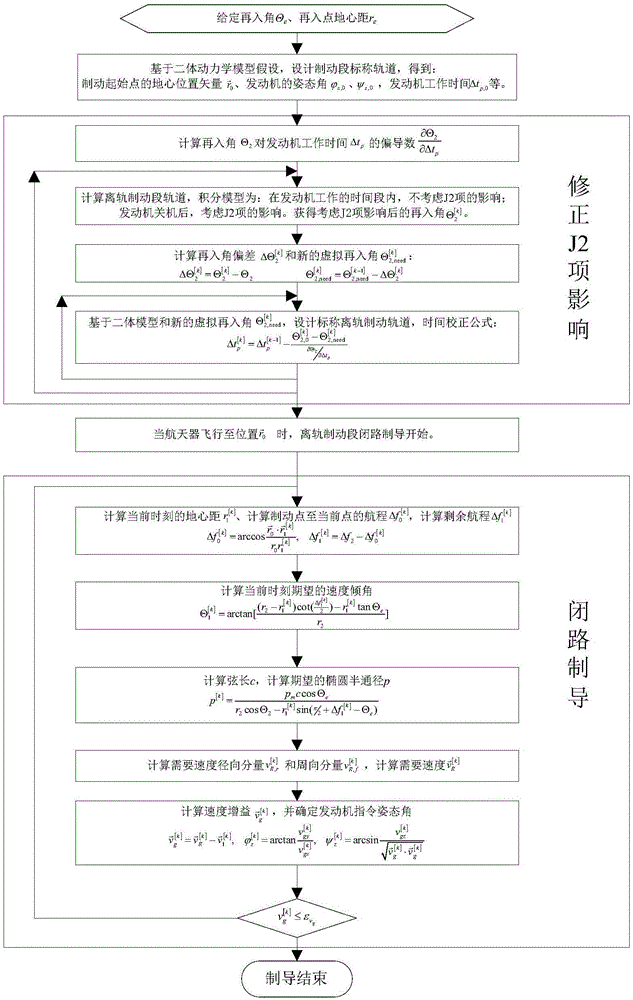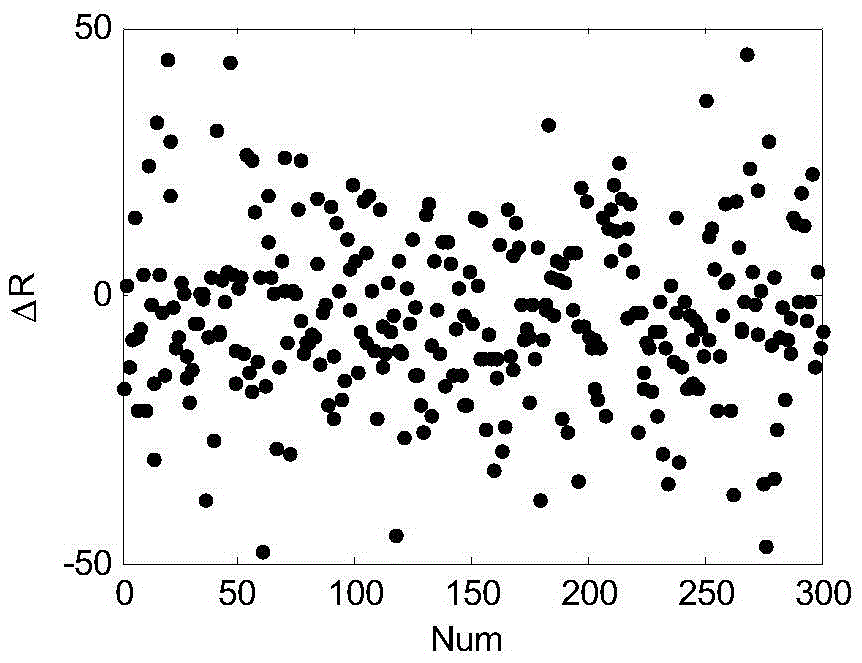De-orbit braking closed circuit guidance method satisfying constrains on reentry angles and flying ranges
A technology of off-orbit braking and re-entry angle, applied in three-dimensional position/channel control and other directions, which can solve the problems of initial position error, initial speed error, low range control accuracy, inability to guarantee range accuracy, and limitations in improving accuracy, etc.
- Summary
- Abstract
- Description
- Claims
- Application Information
AI Technical Summary
Problems solved by technology
Method used
Image
Examples
Embodiment Construction
[0043] Suppose a spacecraft uses a constant thrust rocket engine to de-orbit from an initial circular orbit at a height of 300km through one braking, and meet the requirements of reentry angle and range at the atmospheric boundary at a height of 120km. Because it is flying outside the atmosphere, the force on the spacecraft is mainly the thrust of the rocket engine and the gravity of the earth.
[0044] Establish the motion equation of the aircraft in the return to inertial coordinate system. When the earth is considered as a homogeneous sphere, that is, when the two-body dynamics model is adopted, the motion equation is
[0045]
[0046] Among them: (x, y, z) is the position of the spacecraft, (v x ,v y ,v z ) Is the speed of the spacecraft, m is the mass of the spacecraft, P is the thrust of the rocket engine, ψ z Is the attitude angle representing the thrust direction of the engine, μ e Is the earth's gravitational constant, r is the distance between the center of the spacecraft...
PUM
 Login to View More
Login to View More Abstract
Description
Claims
Application Information
 Login to View More
Login to View More - R&D
- Intellectual Property
- Life Sciences
- Materials
- Tech Scout
- Unparalleled Data Quality
- Higher Quality Content
- 60% Fewer Hallucinations
Browse by: Latest US Patents, China's latest patents, Technical Efficacy Thesaurus, Application Domain, Technology Topic, Popular Technical Reports.
© 2025 PatSnap. All rights reserved.Legal|Privacy policy|Modern Slavery Act Transparency Statement|Sitemap|About US| Contact US: help@patsnap.com



